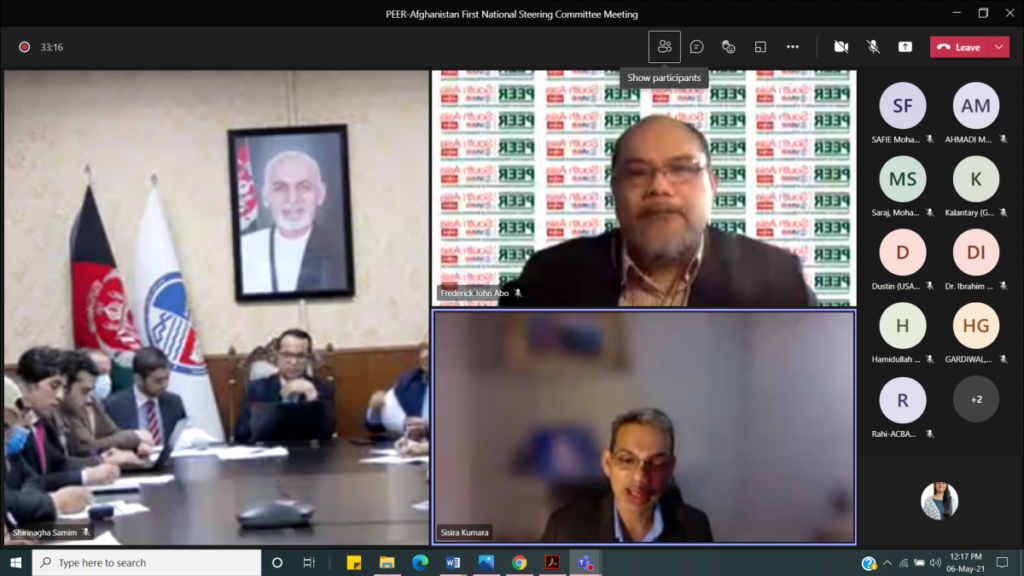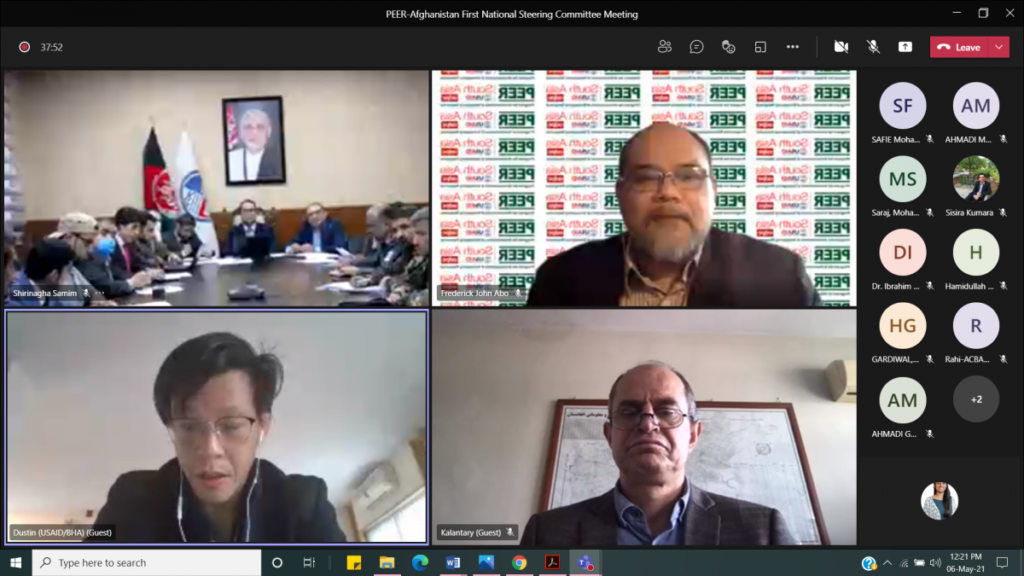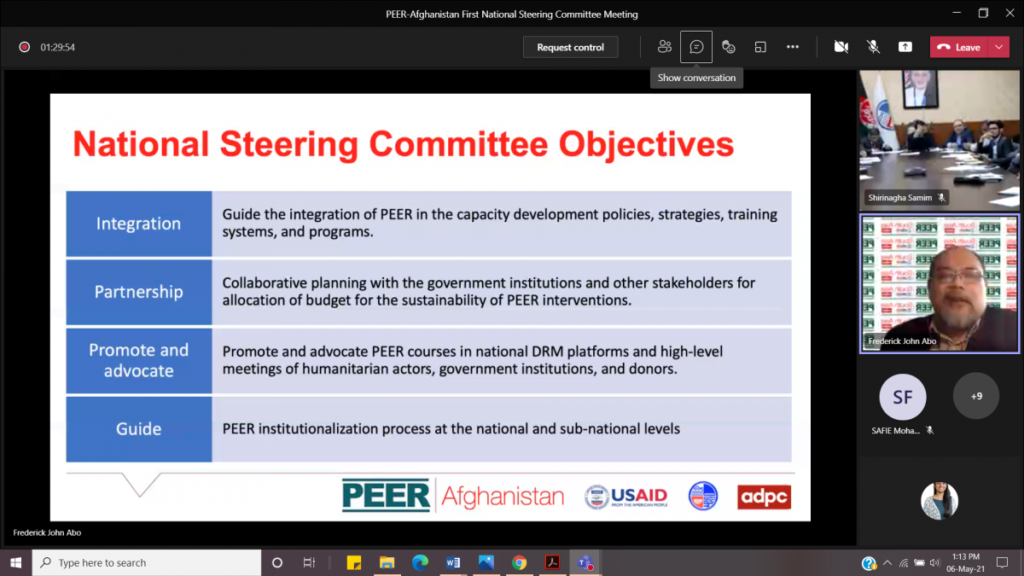Afghanistan is a new entrant in this current phase of the PEER program. On 06 May 2021, the Afghanistan National Disaster Management Authority (ANDMA) as the nodal agency, together with other national implementing institutes and partners held the first meeting of the PEER National Steering Committee (NSC). The recently constituted NSC has been formed to oversee and provide strategic guidance for the PEER implementation as well as achieve institutionalization- a key thrust for PEER5. The meeting was attended by 31 representatives from organizations involved in emergency response in the country.

The official launch and PEER Country Planning Meeting was held in Kabul Serena Hotel on 03 February 2021. As part of the recommendations from the meeting, the PEER program will be guided by a National Steering Committee (referred to as PEER-SC) to provide strategic guidance, monitor, and advance the implementation of priority interventions on supporting the development of emergency response capacities in the country.
Mr. Sisira Madurapperuma Director for Preparedness for Response and Recovery, ADPC reiterated that the meeting will bring a common understanding of the roles and responsibilities of the PEER National Steering Committee, while also providing an opportunity to bring an agreement to endorse the PEER Work Plan. He also thanked ANDMA for achieving another important milestone for the PEER program, particularly on mobilizing the agencies and implementing institutions to form the NSC.

Mr. Dustin Shiau, Senior Regional Program Officer, USAID appreciated ANDMA for hosting the first NSC Meeting. He added that USAID has been supporting and funding programs like the PEER program for a sustainable and more resilient world, especially in South Asia. He highlighted the significance of developing and building the capacity of institutions, tools, systems, and comprehensive plans and curriculum that can enhance the response capacity for managing disaster risk effectively in Afghanistan.
The PEER5 program intends to work with national partners like ANDMA, the Ministry of Defense, Ministry of Interior, Ministry of Public Health, World Health Organization, and other UN Agencies and I/NGO to strengthen emergency response capacities through the integration of PEER in institutional policies, strategies, systems, programs, and budgets. This is particularly important and relevant to Afghanistan’s current context due to the PEER program’s role in Afghanistan’s government and partners’ capacity development on effective emergency response.
Mr. Mohammad Qaseem Haidari – Deputy Minister in ANDMA and Chair of the PEER-NSC appreciated ADPC and USAID for the collaboration over the PEER program with ANDMA. He said the PEER program is important for improving preparedness and building national capacities through training, as we are experiencing localized emergencies across the country. During this week, 17 provinces were hit by flash floods, killing 56 people and damaging public and private assets. The interest and participation of our emergency management stakeholders in the country planning meeting and their engagement created meaningful collaboration over the successful implementation of the PEER program and we believe the program will bring significant impacts in the training programs and sustainability of capacity-building through the institutionalization process.

The meeting proceedings included a presentation of the draft scoping study highlights, National Steering Committee Terms of Reference, delineation of roles and responsibilities of ANDMA and National Implementing Partners, PEER Work Plan, and establishment of the Technical Curriculum Review Group (TCRG) for national adaptation of the PEER curriculum.
The meeting ended with active participation, discussion, and emerging recommendations and agreements as a way forward to finalize roles and responsibilities of NSC, bilateral consultations to develop further the National Scoping Study, nominations to finalize TCRG, list and start the national curriculum review and adaptation process.


